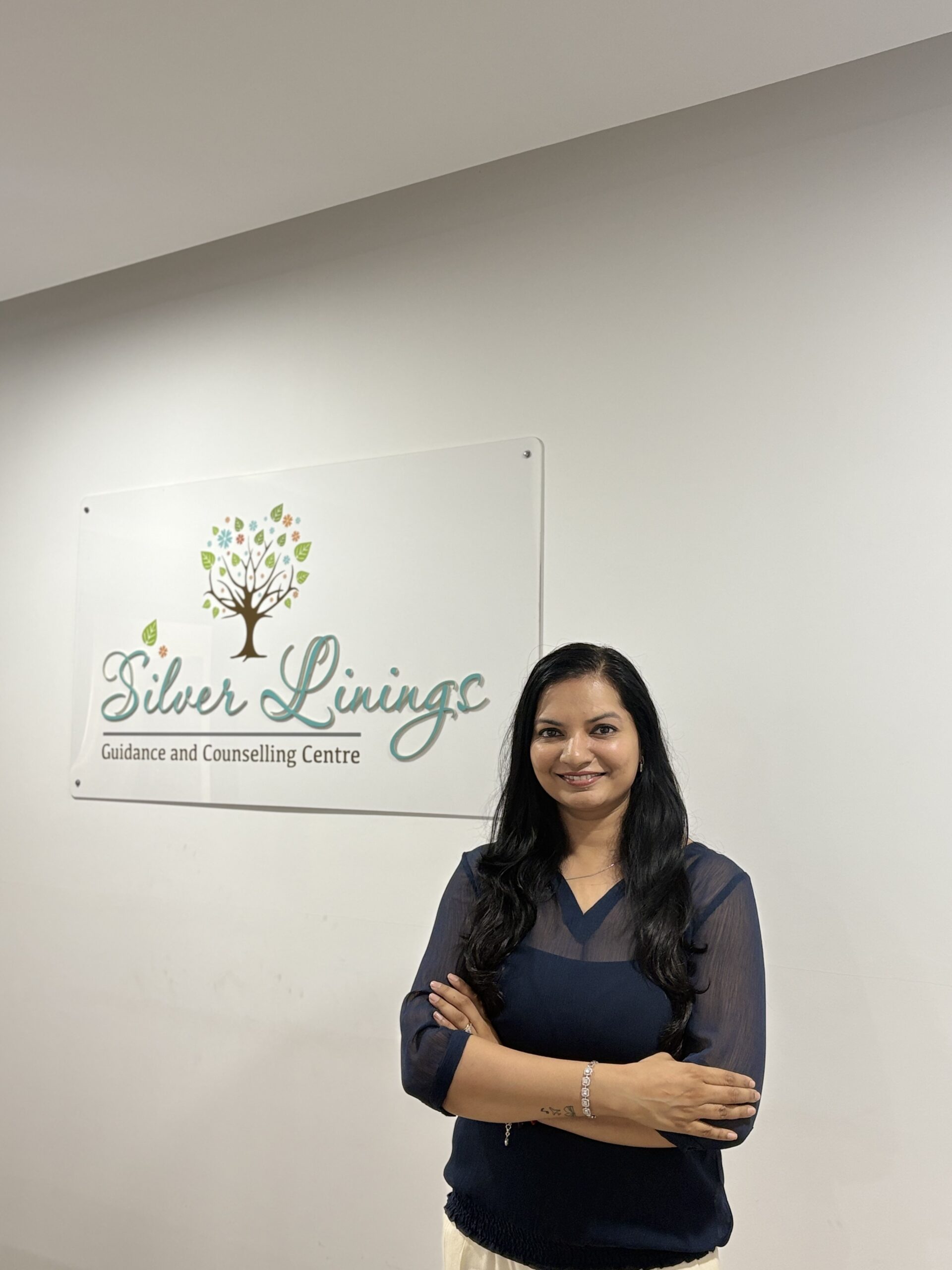
For Shobhika Jaju, founder of Silver Linings: Guidance & Counselling Centre in Margao, the path to psychotherapy began with a deep-seated curiosity about human nature. From an early age, she found herself captivated by the emotional landscapes people carried—their coping mechanisms, vulnerabilities, and quiet resilience. That curiosity soon transformed into purpose, and purpose into profession.
Having pursued psychology since the 11th grade, Shobhika built her academic foundation with a Bachelor’s degree in Psychology and a Master’s in Applied Clinical Psychology. Over the past 12 years, she has supplemented her core training with a diverse set of credentials. These include certification as a Rational Emotive Cognitive Behavioural Therapist (RECBT), Queer Affirmative Counselling Practitioner, Career Consultant, and Professional Supervisor for mental health professionals. Her lifelong commitment to learning continues to inform and evolve her practice.
A Focus on the Deeply Human
Shobhika’s therapeutic work centers around anxiety, trauma, identity, self-worth, and interpersonal relationships. She also supports clients through life transitions, grief, and burnout, while addressing the often-overlooked impact of familial and societal expectations. A significant part of her practice is queer-affirmative and rooted in cultural sensitivity.
What draws her to these themes is their layered and profoundly human nature. These are the spaces where individuals often feel most isolated—and helping them navigate such terrain is both humbling and transformative. Over the years, her therapeutic lens has sharpened through working with a wide demographic, but her focus has steadily crystallized around these areas of meaningful engagement.
Therapy as a Gentle Unfolding
Describing her approach as collaborative, compassionate, and context-aware, Shobhika rejects the notion of therapy as a tool to “fix” people. Instead, she views it as a space to rediscover, reflect, and realign. Drawing primarily from Cognitive Behavioral Therapy (CBT) and Rational Emotive Behavioral Therapy (REBT), she takes an eclectic stance, integrating Narrative Therapy, Person-Centered Therapy, mindfulness, and somatic elements into her sessions.
The first meeting with a client is less about diagnosis and more about connection. She prioritizes creating a safe, unrushed environment where clients can speak freely and start to feel seen. Trust-building is the foundation, and it begins the moment a client walks through the door.
For those hesitant to seek help, she emphasizes that showing up is already a courageous step. There’s no pressure to reveal everything all at once. Instead, therapy unfolds at the pace of trust.
Healing in Everyday Practice
In Shobhika’s view, healing extends far beyond the therapy session. It lies in everyday rituals—how we breathe, eat, rest, and interact with our environments. She encourages clients to adopt simple mindfulness practices like journaling, grounding exercises, and body scans to anchor themselves in the present. These practices serve as bridges between internal awareness and external living.
She also addresses the emotional and social complexities of the modern age. Today’s generation, she observes, battles anxiety, chronic stress, and emotional disconnection, often intensified by social media and unrealistic expectations. Yet, what gives her hope is their growing openness toward mental health conversations, both online and offline.
Breaking Myths and Building Awareness
Shobhika actively works to dismantle common myths about therapy. One prevailing misconception is that therapy is reserved for those who are “not okay.” In truth, therapy can benefit anyone seeking clarity, balance, or deeper self-understanding. Another is the assumption that therapists offer direct advice or solutions. Instead, she highlights therapy as a space for exploration, reflection, and collaborative problem-solving.
To sustain her own mental well-being, Shobhika practices what she preaches. Regular check-ins, supervision, personal therapy, and boundaries help her stay grounded. She incorporates movement, writing, and time with loved ones into her daily rhythm—embracing the reality that healing professionals also need care.
Witnessing Quiet Transformations
Rather than pinpointing one transformative moment, Shobhika finds deep meaning in the collective arc of her practice. Again and again, she witnesses clients move from feeling unseen to experiencing validation and connection. These subtle shifts—from isolation to self-acceptance—form the heart of her work.
The post-pandemic era, she notes, has accelerated much-needed change. With greater acceptance of virtual therapy, more people are now reaching out proactively. The field itself has grown more inclusive, trauma-informed, and attuned to cultural realities—an evolution that aligns with her own approach.
Therapy in the Indian Context
Shobhika is deeply aware that mental health in India intersects with culture, gender roles, familial duties, and social expectations. She brings this understanding into every session, helping clients unpack the complex narratives they’ve inherited. For her, cultural sensitivity isn’t an optional lens—it’s the cornerstone of meaningful therapy.
When asked for resources, she offers a gentle suggestion: start with what resonates. Maybe You Should Talk to Someone by Lori Gottlieb offers a tender introduction to therapy, while Anxiety: Overcome It and Live Without Fear by Sonali Gupta provides practical insights for those struggling with stress. She also encourages reflective practices—be it journaling, mindful movement, or heartfelt conversations—as powerful tools for self-awareness.
The Message That Matters Most
If there’s one thing Shobhika hopes people internalize about mental health, it’s this: healing isn’t about becoming perfect—it’s about becoming more yourself. Embracing your full emotional range, asking for help, and honouring your own rhythm is not just valid—it’s vital.
In a world that often demands constant performance, Shobhika Jaju offers something deeply radical: space to pause, reflect, and just be. And within that space, healing quietly begins.


